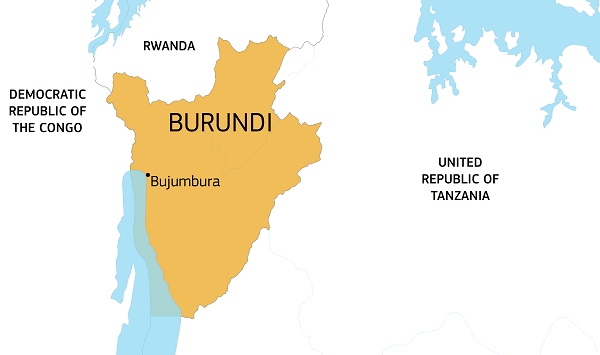
The EU has announced new funding of €54.5 million in humanitarian aid. This life-saving assistance will be devoted to the most vulnerable people affected by human-made or natural disasters, epidemics, and displacement in the Great Lakes region of Africa.
The aid will address the needs of the most vulnerable in the Democratic Republic of the Congo (DRC), the Republic of Congo and Burundi, and will support Burundian refugees in the DRC, Rwanda and Tanzania.
Commissioner for Crisis Management, Janez Lenarčič, said: “Many people in the Great Lakes region face conflict and violence, natural disasters, as well as recurrent outbreaks of epidemics such as cholera, measles and Ebola – a threat that recently re-emerged in the region. COVID-19 and its health and socioeconomic implications further exacerbate the humanitarian situation. The magnitude of the humanitarian crisis, especially in the Democratic Republic of the Congo, is very worrying. The EU’s assistance will be used to provide food, health and protection assistance, enhance emergency and disaster preparedness, and increase access to education for those displaced.”
Out of the €54.5 million, over 80% of the funds will go to humanitarian response in the DRC – €44 million, including €4.5 million for education in emergencies and €1.5 million for disaster preparedness. €1.5 million is assigned to disaster preparedness in the Republic of Congo. €9 million is allocated to Burundi and the regional response to Burundian refugees, including €1 million each for disaster preparedness and education in emergencies.
The coronavirus pandemic is exacerbating an already dire situation in the Great Lakes region. Countries in the region are prone to epidemics, more so in areas confronted by population movements and conflict.
The pandemic has also accelerated the socio-economic challenges of the region, which, to various degrees, has been dealing with decades of conflict, underdevelopment, extreme poverty and malnutrition.
The 11th Ebola outbreak in the DRC was declared over in November 2020. Ebola re-emerged in the North Kivu province in the eastern part of the country in February 2021, but no further Ebola cases have been reported since 1 March 2021, while the response continues (infection prevention and control, contract tracing, vaccination, etc.)
Humanitarian action alone cannot solve the underlying and often structural causes of the humanitarian crises in the region. The EU is therefore applying and promoting a humanitarian-development approach, where donors work together to further increase the coherence between humanitarian and development aid and stabilisation actors. (End)
